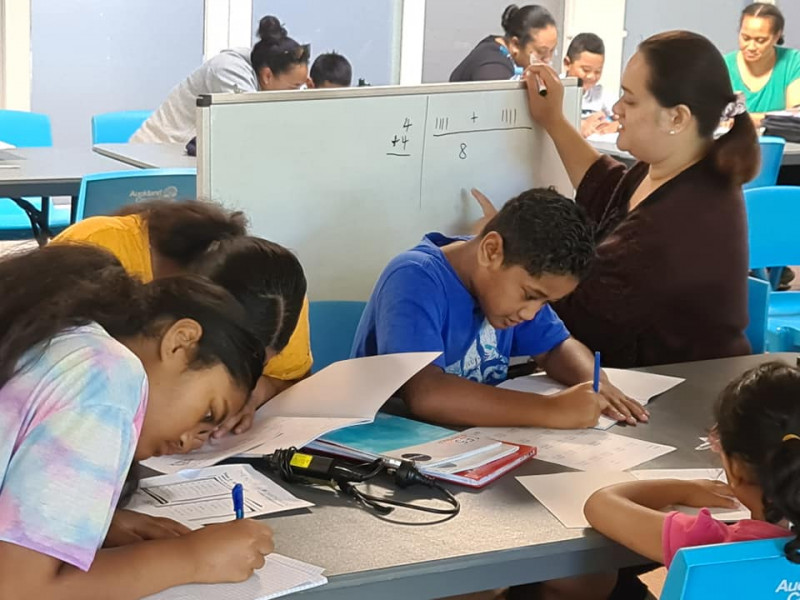The secret to Mathematics
The secret to Mathematics

Halaevalu Tu’ipulotu Halanukonuka says the secret to Mathematics is not really a secret – it comes down to practicing, memorising, and treating the subject like a game.
Growing up in Tonga, Halaevalu enjoyed Maths at primary school and remembers so much of what she was taught, evolved around maths.
“This ranged from playing cards and marbles, memorising bible verses, cooking and finding the reasoning of things,” she says.
“Maths is a tool to solve many real-life problems.”
At 14 years old, Halaevalu’s father - a Chief Marine Engineer and Engineering Lecturer in Tonga, and her mother, who worked at a bank doing finance roles – both passed away.
“So, my uncle brought me and my siblings to New Zealand for better life.”
Halaevalu attended Taumarunui High School, followed by Tamaki College, and went onto study Statistics and Mathematics at the University of Auckland.
“At university, I did not do well in my other papers compared to my Maths papers and I realised I am good at the subject because of the practice I did and the passion I have had for Maths since primary school.”
Throughout her degree, Halaevalu observed there were not many Pacific people – or women - studying Maths.
Halaevalu is currently studying a Bachelor of Engineering (Honours) as she has always wanted to be an Engineer like her father.
Her lived experiences have inspired her to find a way to help Pacific youngsters target a Maths-related degree, and she came up with the idea to run free Maths classes for primary and secondary children in low decile areas.
“I wanted to make use of my Maths and Statistics degree by sharing it with those who need it, especially our kids.
“I knew in my heart that one day I would make it happen,” she adds.
Halaevalu believes if we practice maths through memorisation and treating it as a game, young Pacific people will enjoy it and be good at it.
Memorisation and playing games are the method used by the old Pacific Navigators, she continues.
“Our traditional jobs were carving, weaving, fishing, planting which evolve around mathematical mindsets.
“Our culture does practise a lot of memorisation in cultural activities like dancing to memorising bible verses for White Sundays.”
Halaevalu has created a Facebook page Maths for Juniors, where children can go for assistance, and she is hoping to increase numbers taking part in her free Maths classes in lower decile areas, but she needs more support to make this happen, she says.
“The aim is the children will enjoy it and go onto pursue a Maths-related degree at tertiary level and pass on their love for the subject to the next generation.
“It will take hardcore practice daily and bringing back the old ways of practicing maths without calculators and devices is the best way to teach our Pacific kids.”
